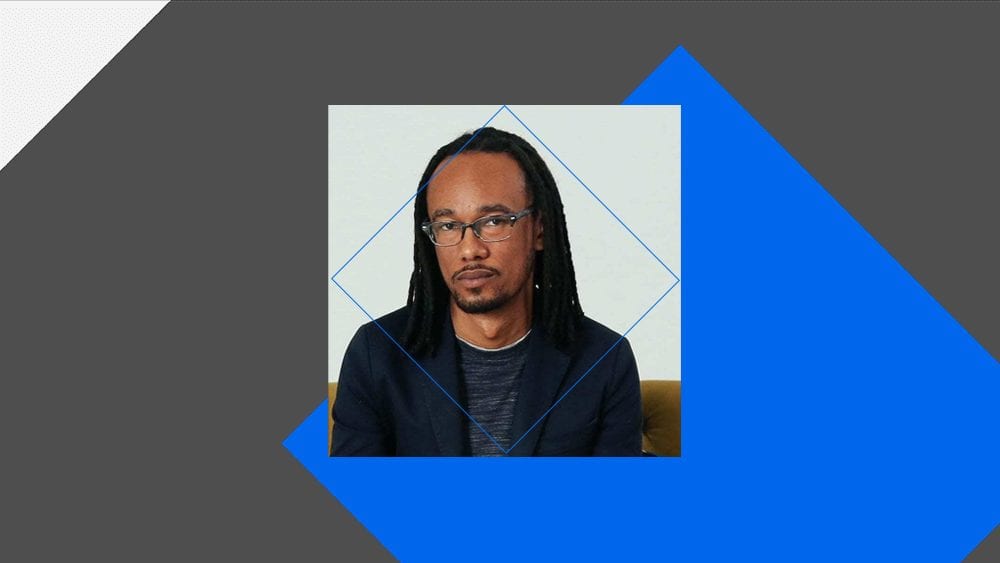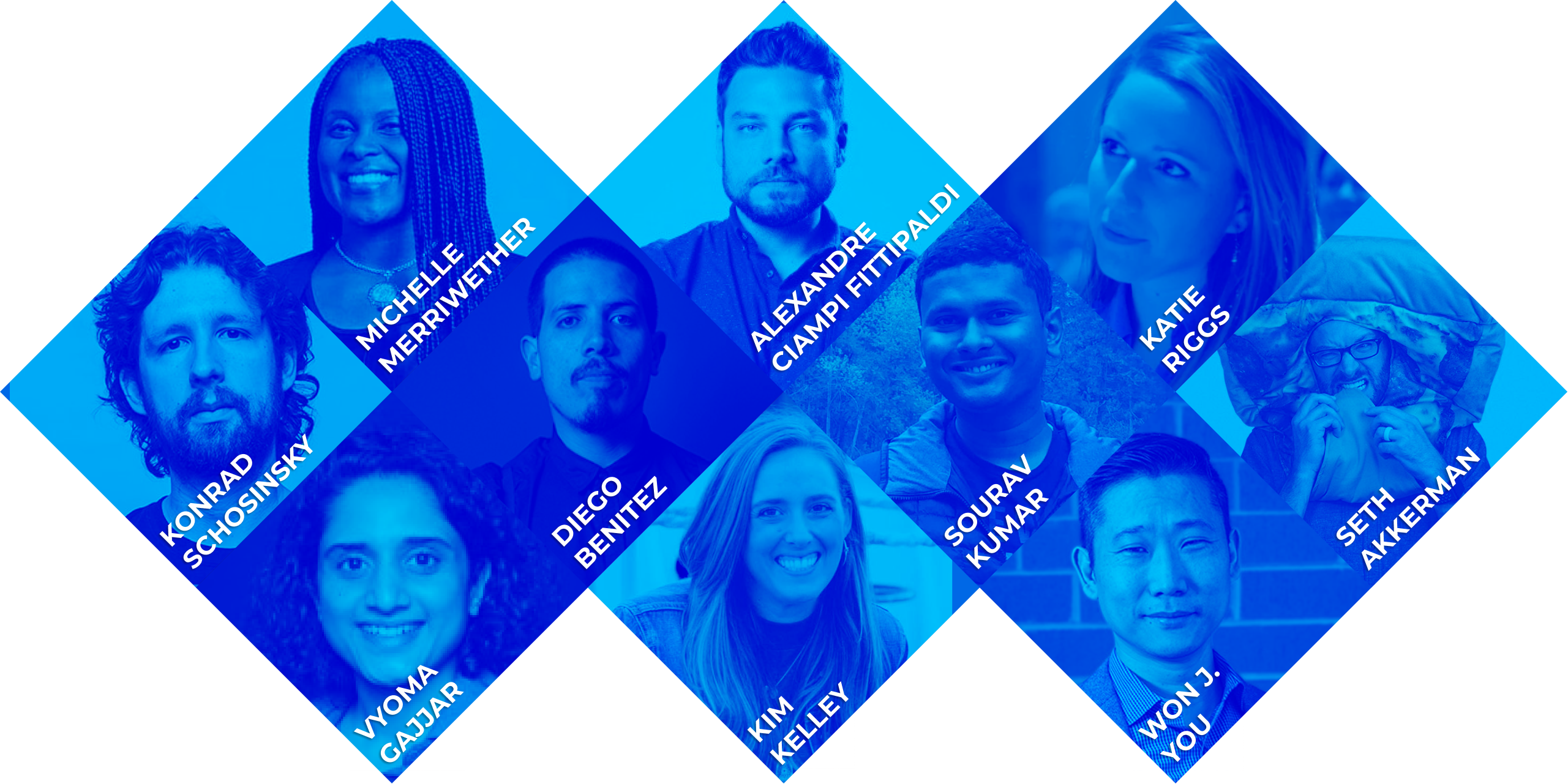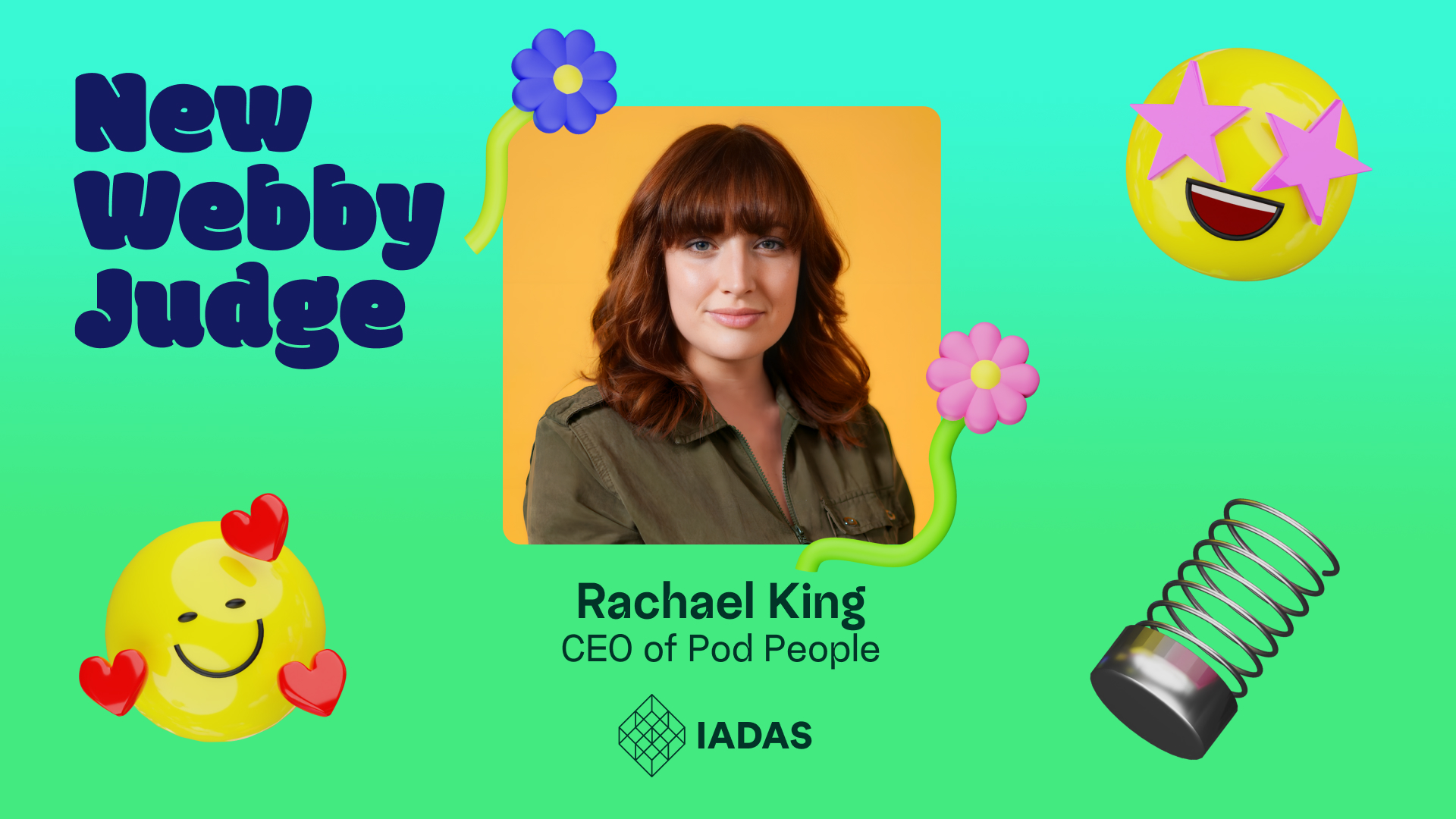1. Why are you excited to serve as a Webby Awards judge? What expertise do you bring?
My perspective on the modern Web is colored by my introduction to the old-school Internet — my first computer was a 386 SX running Windows 3.1, and my first encounter with networking was co-sysoping BBSs and spending entirely too much time on FidoNet. And after a career spent in both start-ups and advertising, I’m excited to see what my Internet OG-ness brings to The Webby Awards.
2. What trend or emerging technology are you most excited about in your field of work?
I’d bet $500 that most people say “machine learning” when asked this question, and honestly, that’s my answer, too. But machine learning being used in user-centric ways, adding real value to how people use things instead of just driving efficiency and revenue. Interfaces powered by AI? Voice-based artificial assistants, focused on what a human needs, not what a big company wants? That’s the stuff that gets me out of bed and in front of a keyboard day after day.
3. Why do you think being a part of The Webby Awards community matters?
It’s rare to find a community focused on the Internet that has such a diverse mix of skill sets. It’s also rare to find an Internet award that my parents have heard of. A combination of the two? Doesn’t get better than that. From technologists to pop-culture-makers, The Webby Awards has it all, and I’m honored to be a part of the community.
4. Since so much has changed this year, what is one trend you’d like to see stick around in your industry?
As an Internet OG, I remember assuming that creation of a global network — where anyone, anywhere, can instantaneously communicate with anyone, anywhere — could be nothing but a positive force. And the underlying technologies could only ever be used for good.
I was wrong. We were wrong. And considering the dumpster-fire nature of the world these days, in no small part driven by use (misuse?) of the Internet, it’s gratifying to see more and more OGs admitting that we messed up, big time.
I want that trend to continue. I want us as a society to think about the potential negative impact of technology while we’re making it, not after the damage has already been done.
5. What projects or endeavors are you currently working on, and how will it benefit online communities?
I saw a tweet the other day that referred to a poorly-thought-out ML project as putting some pictures in a “box of math.” That phrase has stuck with me. People who don’t create technology for a living tend to assume that technology — and math — is infallible. Those of us who do create technology know the truth.
So I’ve been giving a talk called “The Robots Are Already Here,” explaining a bit about how machine learning actually works, how poorly-constructed training data builds bias into models — and, most importantly, how our society is using those models to make real decisions that impact human lives. The usual audience for the talk is advertising students; it’s on all of us OGs to get into the heads of the newbies as soon as possible, especially those who’ll end up making business decisions about how to use technology.
Bonus Question: What’s your favorite app that other people haven’t heard of?
I’m a DSLR nerd, and so I’ve been using a Canon 5D as my webcam during the quarantine, but I recently discovered EpocCam — which turns your iPhone camera into a webcam for all your Zoom calls. Pretty neat.









